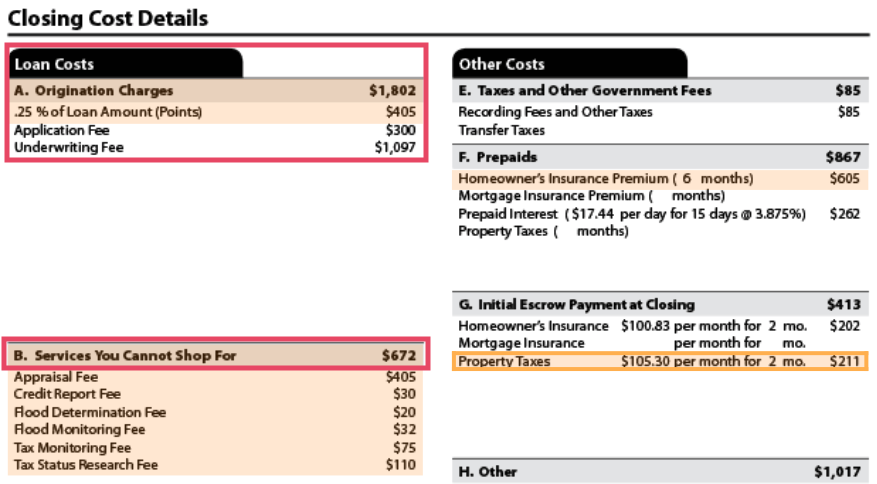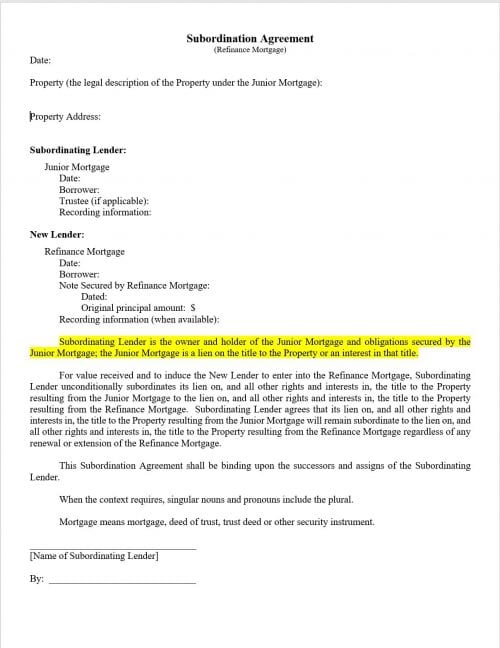If there is no equity in the home, then I would presume she would enable them to take the home if you or any other successors do not want to keep the home at a reward of. They would arrange to take the home either by Deed in Lieu or through foreclosure but Deed in Lieu is much better for the lending institution also.
We have seen debtors who obtained more in 2005 2007 than their houses are still worth today. That does timeshare in florida not make the loan a bad loan those debtors received more money than their house is presently worth and were enabled to live in their homes for 7 9 years without having to make a single payment and now that the loan is higher than the present worth of the house, they are not required to pay one cent over the present value towards the reward of the loan.
A number of them paid interest on loans that were well above the current worth of the homes when the worths dropped and some paid until they could not pay any longer and then they had no home to live in anymore and no money to begin over. Your mom was ensured a house to reside in for as long as she wanted/could and didn't have to pay any regular monthly payments for the whole time she lived there (simply her taxes and insurance coverage) (which banks are best for poor credit mortgages).
Your mom has actually made no payments on her loan for the last 9 years. Please forgive me; I am not insensitive to your mom's circumstance (how much is mortgage tax in nyc for mortgages over 500000:oo). It simply was not the reverse home mortgage's fault that the whole economy broke down which residential or commercial property values plunged. I guess I simply look at it a different method, thank goodness mother had a reverse home mortgage and not a forward home loan that may have required her to lose the house previously without the defenses that she has actually had.
She can leave at her leisure (another advantage of the reverse mortgage) and after that when she is out and you have moved all of her belongings if none of the other member of the family desire the house, just call the servicer and tell them she is out. They will relocate to take the home back and you won't even need the help of an attorney. how many mortgages to apply for.
What Is The Deficit In Mortgages Fundamentals Explained
A "non-borrower" is a person who lives in the house but whose name is not on the loan files. Normally, the non-borrower should move when the debtor passes away unless HUD guidelines certify them to remain. A "co-borrower" is an individual whose name is on the loan files together with the house owner (applicant).

The sharp decline in the realty market has affected countless Americans, and seniors are one of the groups most affected. This is particularly true of senior citizens who have so-called "reverse home loans." This type of mortgage can potentially be an excellent method for people over the age of 62 to get cash out of their homes.
Reverse home loans are not new. But older property owners are progressively turning to them to enhance their situations later on in life, particularly throughout a down economy. These types of mortgages, also called House Equity Conversion Home Mortgages (HECMs), allow individuals to withdraw a few of their home's equity and receive it as a swelling sum, in regular monthly payments, as a credit line or a combination of these alternatives.
Property owners qualified for reverse mortgages should be at least 62 years of ages and need to own the home or have a very little outstanding mortgage. The residential or commercial property should be their primary home and homeowners need to be without any defaults on federal debts. Homeowners need to also attend an informative session about reverse home loans prior to submitting any HECM loan applications.
Due to the fact that of a rash of lending institution foreclosures on primarily senior property owners holding reverse home loans, the AARP Foundation sued the Department of Real Estate and Urban Development (HUD), challenging a rule that had the effect of adding to foreclosures. The guideline needed a successor to pay the complete home loan balance to remain in the house after the borrower's death, even if the quantity was more than the market worth of the residential or commercial property.
What Does After My Second Mortgages 6 Month Grace http://augustedux027.cavandoragh.org/the-obtaining-a-home-loan-and-how-mortgages-work-statements Period Then What Do?
Reverse mortgages can be costly and complicated for elderly house owners, as they are distinct from traditional mortgages. Likewise, a reverse home loan can often diminish all of the equity in the homes if the property owners extend the reverse home mortgage over too long of a duration. This frequently occurs where the property owner takes a reverse home loan on a presumption of life span, but survives well past the anticipated mortality date.
This has been specifically true for recently widowed house owners, and some successors of customers, due to the fact that of loan provider compliance with an unknown HUD rule that was instituted in 2008. Prior to the rule modification in 2008, HUD had followed a policy that customers and their beneficiaries would not owe more than a house's value at the time of payment.
The 2008 rule mentioned that making it through spouses, in order to keep their houses, needed to pay off the reverse home loan balance shortly after the deaths of their spouses. This held true no matter whether or not the surviving partner's name was on the loan, and regardless of the home's then-current worth.
That scenario, and the associated HUD rule, is what triggered AARP to take legal action against HUD. AARP formally challenged HUD's action in changing this rule, arguing that it was done arbitrarily by letter, rather than through the required administrative treatment. The fit even more alleged that HUD's guideline modification violated defenses previously enabled widowed partners to avoid foreclosure.
AARP hoped this would avoid further unlawful foreclosures from reverse mortgages due at the time of a debtor's death. In April 2011, HUD rescinded the 2008 guideline that needed surviving spouses not called on the property's title to pay the full loan quantity to keep their houses. The ramifications of this modification are not yet fully clear.
Who Does Stated Income Mortgages In Nc Fundamentals Explained

However it is essential to talk with an experienced property lawyer to know where you stand. Reverse mortgages ought to offer older house owners more financial freedom, however when they fail this function, they can unfortunately leave elderly people both homeless and defenseless. Elderly Twin Cities property owners considering entering into a reverse home mortgage arrangement need to consult knowledgeable Minnesota real estate attorneys like Burns & Hansen, P.A. what is the concept of nvp and how does it apply to mortgages and loans.
In addition, if you already have a reverse mortgage on your home, you should discuss your scenario with an attorney experienced in these kinds of mortgages to ensure you and your Check out here spouse are secured if one you dies or if your house loses equity due to the fact that of the slump of the property market.
A reverse home loan is a way for house owners ages 62 and older to take advantage of the equity in their home. With a reverse mortgage, a homeowner who owns their house outright or at least has considerable equity to draw from can withdraw a portion of their equity without having to repay it till they leave the house.